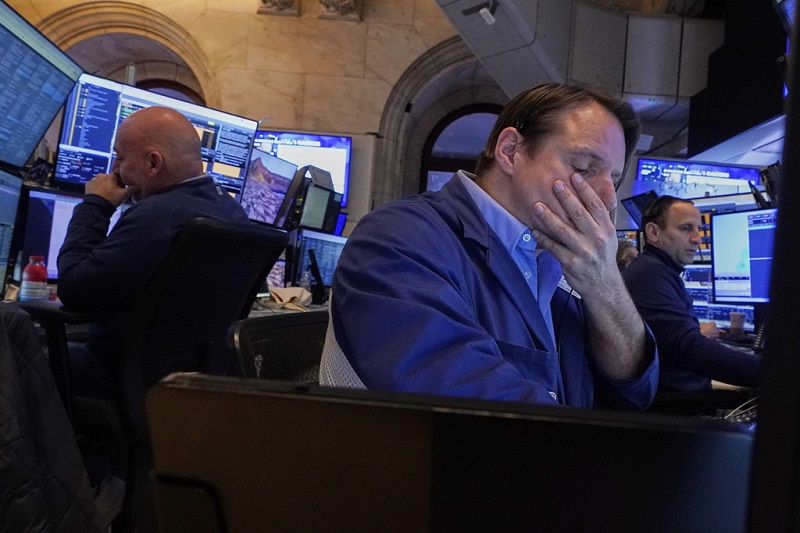New Fall in stock markets – risk of launching prices of goods and services
US economic growth will be affected and prices will rise for consumers as a result of new tariffs on imports of goods, the head of the Central Bank of America warned.
Jerome Powell, president of the US Federal Bank (FED), said the customs fees recently announced by President Donald Trump were larger than the bank expected, exceeding the highest limit of estimates. His comments come as a crown of turmoil on the world stock markets, as investors reacted to the implementation of duties and the escalation of trade war between the US and China. Powell said that investigations into households and businesses reported a “sharp fall” of their senses about the financial perspectives, mainly due to duty worries.
Ever since he returned to his duties, Trump has triggered the trade war, introducing a 10% tax on the goods imported into the US by the overwhelming majority of countries. It has further escalated duties with China, imposing a 145% tax on Chinese goods, though there are some exceptions to smartphones. China retaliated with 125% duties to US products. The White House said on Wednesday that when new duties are added to existing ones, contributions to some Chinese products could reach 245%. “The level of increases in duties announced so far is significantly higher than expected,” Powell said in his stricter warning of the impact of the new duty regime. “The same is likely to apply to the economic impacts, which will include higher inflation and slower growth,” he said.
The US president has stated that duties will boost US manufacturing and jobs, but the stock markets are scared. Powell said on Wednesday that the impact of Trump’s government changes on trade, as well as immigration, fiscal policy and regulation on the US economy, remains “extremely uncertain”. The chain implications of Donald Trump’s World War War have pressed on Wednesday, April 16, on the US brokerage markets, which have been shocked by its alien commercial policies for weeks. The shares fell widely declined, with technology being particularly harsh, as colossal companies such as Nvidia, which are largely connected to the global supply chain, warned of blows to their results.
All three main US stock markets fell on Wednesday. Dow Jones fell 1.73%, while the S&P 500 and Nasdaq closed the day with a loss of 2.24% and 3.07% respectively. But perhaps more alarming for the Trump government than the decline in shares and shares was the increase in the number of investors who abandoned US government debt last week. The increase in the actual interest rate that the US government had to pay for its counterparts allegedly contributed to the President’s decision to suspend certain higher duties.
Governments sell bonds – virtually ouses – to borrow money from financial markets and pay interest in return. The US usually does not see high interest rates for their debt, as their counterparts are considered a safe investment, but interest rates increased abruptly last week in a sign that investors lose their confidence in the world’s largest economy. They have settled this week, but remain elevated.
Powell said that despite the uncertainty and disasters in the markets “the US economy is still in a stable position.” For the time being, he said, the Fed could maintain its reference rate “to wait for more clarity before considering any adjustment”. The Fed report rate has currently been set in a range of between 4.25% and 4.5%, where it has been in December after a series of interest rates reductions in late last year.
But the Fed is also instructed to maintain the highest possible employment as well as stable prices. In the case of increasing inflation and an increasing unemployment rate, Powell said that “we will look at how far the economy is from each target” and then consider “the potentially different time horizons to set prices under control and reduce the unemployment rate”. “As the great Sicagos Buler once noted,” Life moves quite quickly, “he added.






